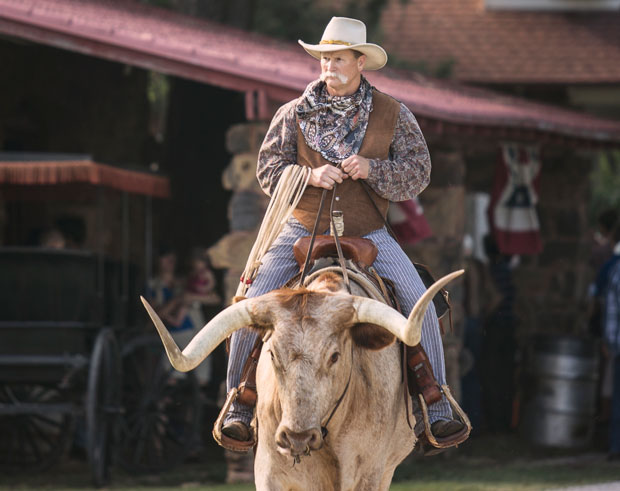Listed seventh on ESPN’s greatest athletes of the 20th century, it could be argued that Oklahoman Jim Thorpe warranted even higher positioning. How many other athletes on the list won Olympic gold medals in track and field and excelled in professional football and baseball? President Eisenhower called him “supremely endowed,” and the King of Sweden even told Thorpe that he was the greatest athlete in the world.
Born in 1888 in Prague, Okla., Thorpe’s athletic career began in college when legend recounts that he beat his school’s high-jump record on his first attempt. Thorpe later led his college football team to a national championship, playing four different positions on the team.
In the 1912 Olympics in Stockholm, Thorpe won gold medals in the decathlon and pentathlon. As a Sac and Fox Indian, this was done at a time when not all American Indians were yet granted U.S. citizenship.
In 1913 it was discovered that Thorpe had played semi-professional baseball in 1909 and 1910. Olympic rules state that all competitors must be amateurs. His medals were stripped by the International Olympic Commission, but controversy surrounded the entire affair.
Jim Thorpe Museum Director Justin Lenhart says that Thorpe’s coach Glenn “Pop” Warner and Amateur Athletic Union President James Sullivan pled ignorance when Thorpe’s professional baseball career was questioned, even though they were aware of the situation.
“Had they admitted to knowing Jim played professionally, they would have lost their jobs,” Lenhart says. “Both Warner and Sullivan walked away from the scandal, while Thorpe lost everything he’d won.”
It wasn’t until 1983 that Thorpe’s Olympic medals were restored to his family. A group led by Thorpe biographer Robert Wheeler and his wife Florence Ridlon contacted U.S. Olympic Committee President William Simon for help, Lenhart says.
“The 1912 Swedish (Olympic) rules stated that challenges or objections could be made within 30 days of an event. Because Jim lost his medals months after the events he was never afforded an appeal,” Lenhart says.
The word “amateur” had also been deleted from the Olympic charter, paving the way for Thorpe’s restored medals. However, Lenhart says, the IOC has never listed Thorpe as champion in the official record books.
But even with the unfortunate controversy, Thorpe remains a true Oklahoma legacy.
“He set records that stood for decades, and played a key role in the creation of professional football as we know it today,” Lenhart says. “He was the first global superstar.”
Continuing Controversy
Perhaps it only makes sense that even though he died almost 60 years ago and despite the fact that the scandal over his medals was resolved posthumously, Jim Thorpe would remain a controversial figure to this day.
In recent years, conflict has developed between Thorpe relatives and revolving around Jim’s son Jack. Jack Thorpe wants his father’s remains relocated from Jim Thorpe, Penn., back to Oklahoma and he has cited Native American custom for his reasoning.
Jim Thorpe’s remains were transported from Oklahoma following a burial ceremony to the eponymous Pennsylvania town at the bequest of Thorpe’s widowed third wife. The towns of Mauch Chunk and East Mauch Chunk changed their names to “Jim Thorpe” at the time because the athlete’s fame was so great there was belief that it would become a major tourist attraction.
Jack Thorpe has asserted that tradition dictates that his father be buried at the place of his birth. Other relatives disagree and point out that Thorpe’s current burial site has been sanctified in an Indian ceremony.
While the conflict has played out in public relations battles and the courts, it remains largely unsettled although no change if currently pending.
However the issue is resolved, Jim Thorpe’s legacy looms largest over his home state

























